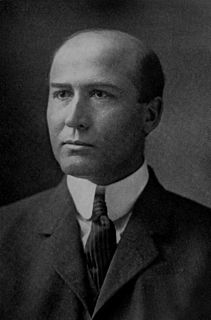A Quote by Edward Gibbon
As long as the same passions and interests subsist among mankind, the questions of war and peace, of justice and policy, which were debated in the councils of antiquity, will frequently present themselves as the subject of modern deliberation.
Related Quotes
Temporary delusions, prejudices, excitements, and objects have irresistible influence in mere questions of policy. And the policy of one age may ill suit the wishes or the policy of another. The constitution is not subject to such fluctuations. It is to have a fixed, uniform, permanent construction. It should be, so far at least as human infirmity will allow, not dependent upon the passions or parties of particular times, but the same yesterday, to-day, and for ever.
Of all the animosities which have existed among mankind, those which are caused by a difference of sentiments in religion appear to be the most inveterate and distressing, and ought to be deprecated. I was in hopes that the enlightened and liberal policy, which has marked the present age, would at least have reconciled Christians of every denomination so far that we should never again see the religious disputes carried to such a pitch as to endanger the peace of society.
Every improvement in our conceptions of justice, as well as in the machinery for the administration of justice, whereby a closer approximation to exact justice may be secured, will make for social peace, though the mere adjudication of conflicting interests will not remove the conflicts themselves nor their cause. That lies deeper than legislatures or courts can probe.
Love of peace is common among weak, short-sighted, timid, and lazy persons; and on the other hand courage is found among many men of evil temper and bad character. Neither quality shall by itself avail. Justice among the nations of mankind, and the uplifting of humanity, can be brought about only by those strong and daring men who with wisdom love peace, but who love righteousness more than peace.
Which class is happiest, the rich, the middle class or the poor? A very successful executive of a large organization touches upon this vital subject in a long letter to all his salesmen. He uses as his text a passage from Robinson Crusoe which included this: ""My Father bid me observe it, and I should always find that the calamities of life were shared among the upper and lower part of mankind; but that the middle station had the fewest disasters, and were not exposed to so many vicissitudes as the higher or lower part of mankind.
Among those whose reputation is exhausted in a short time by its own luxuriance are the writers who take advantage of present incidents or characters which strongly interest the passions, and engage universal attention. It is not difficult to obtain readers, when we discuss a question which every one is desirous to understand, which is debated in every assembly, and has divided the nation into parties; or when we display the faults or virtues of him whose public conduct has made almost every man his enemy or his friend.
If you find common subjects or interests with a prospect, you can establish a business friendship. Ask about a diploma or picture. Your prospect will be glad to talk about what he/she just did or likes to do. Try to captivate him or her in intelligent conversation with engaging questions about their interests. It's obviously better if you're versed in the subject, because that's where rapport is established. Get the prospect to talk about their passions and what makes them happy.
It is wonderful how preposterously the affairs of the world are managed. We assemble parliaments and councils to have the benefit of collected wisdom, but we necessarily have, at the same time, the inconvenience of their collected passions, prejudices and private interests: for regulating commerce an assembly of great men is the greatest fool on earth






































